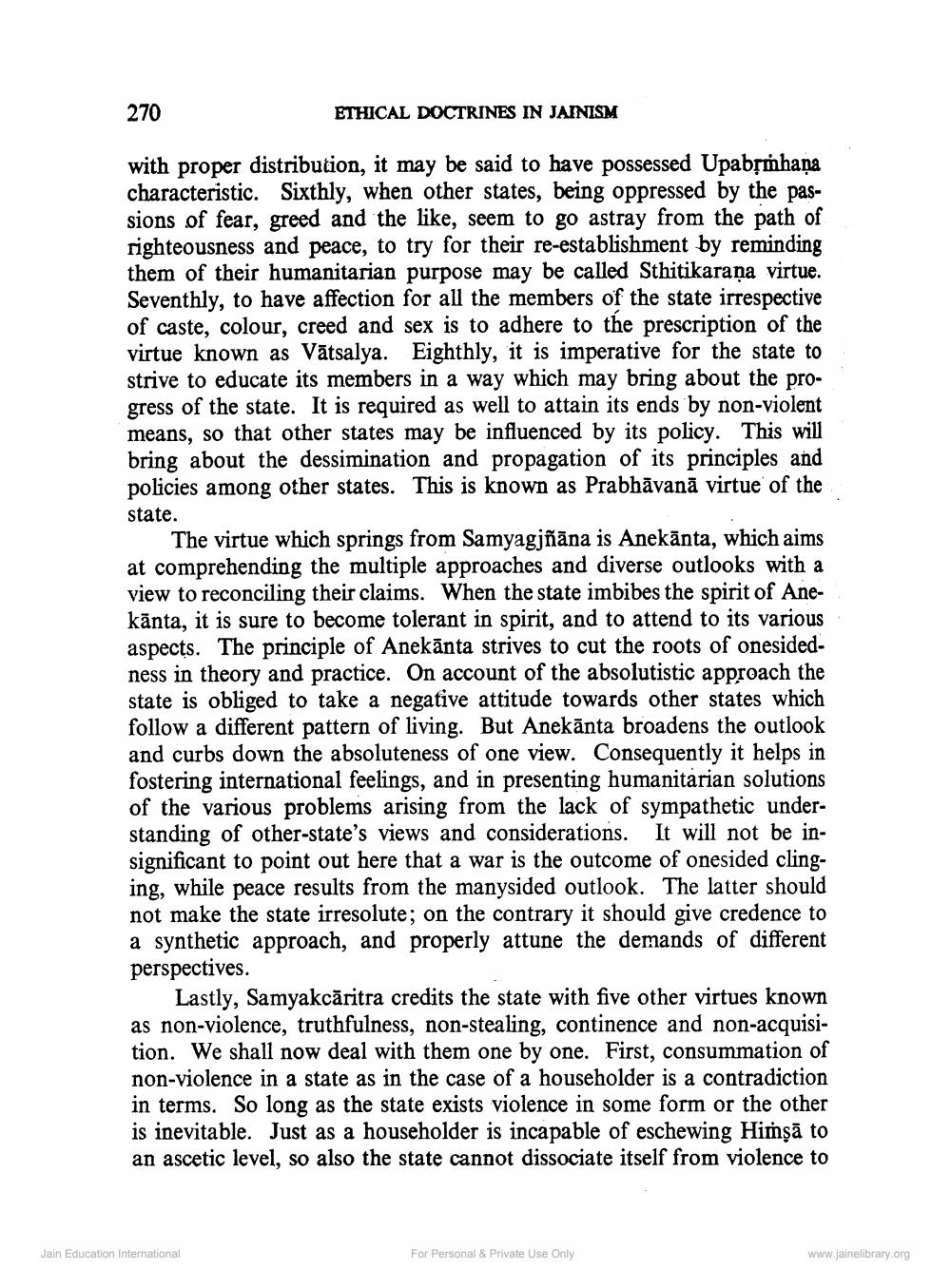________________
270
ETHICAL DOCTRINES IN JAINISM
with proper distribution, it may be said to have possessed UpabŢmhaņa characteristic. Sixthly, when other states, being oppressed by the passions of fear, greed and the like, seem to go astray from the path of righteousness and peace, to try for their re-establishment by reminding them of their humanitarian purpose may be called Sthitikaraņa virtue. Seventhly, to have affection for all the members of the state irrespective of caste, colour, creed and sex is to adhere to the prescription of the virtue known as Vātsalya. Eighthly, it is imperative for the state to strive to educate its members in a way which may bring about the progress of the state. It is required as well to attain its ends by non-violent means, so that other states may be influenced by its policy. This will bring about the dessimination and propagation of its principles and policies among other states. This is known as Prabhāvanā virtue of the state.
The virtue which springs from Samyagjñāna is Anekānta, which aims at comprehending the multiple approaches and diverse outlooks with a view to reconciling their claims. When the state imbibes the spirit of Anekānta, it is sure to become tolerant in spirit, and to attend to its various aspects. The principle of Anekānta strives to cut the roots of onesidedness in theory and practice. On account of the absolutistic approach the state is obliged to take a negative attitude towards other states which follow a different pattern of living. But Anekānta broadens the outlook and curbs down the absoluteness of one view. Consequently it helps in fostering international feelings, and in presenting humanitarian solution: of the various problems arising from the lack of sympathetic understanding of other-state's views and considerations. It will not be insignificant to point out here that a war is the outcome of onesided clinging, while peace results from the manysided outlook. The latter should not make the state irresolute; on the contrary it should give credence to a synthetic approach, and properly attune the demands of different perspectives.
Lastly, Samyakcăritra credits the state with five other virtues known as non-violence, truthfulness, non-stealing, continence and non-acquisition. We shall now deal with them one by one. First, consummation of non-violence in a state as in the case of a householder is a contradiction in terms. So long as the state exists violence in some form or the other is inevitable. Just as a householder is incapable of eschewing Himsā to an ascetic level, so also the state cannot dissociate itself from violence to
Jain Education International
For Personal & Private Use Only
www.jainelibrary.org




